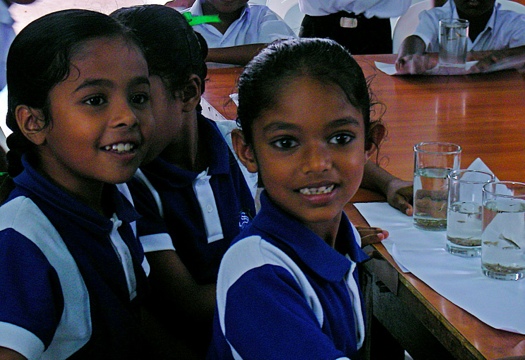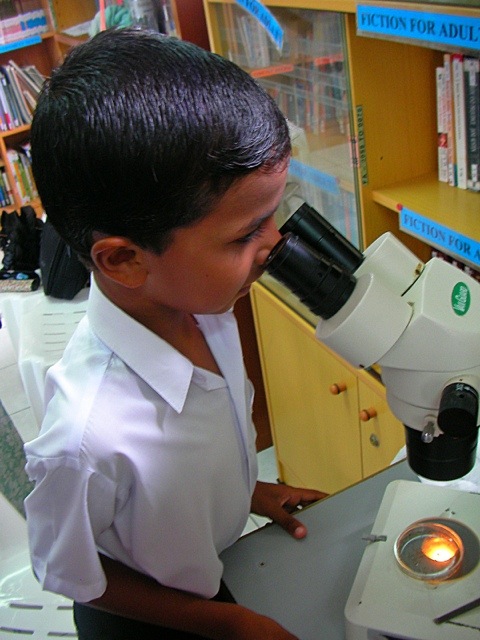On April 24th 147 school children from Bodu Huraa School attended a science lab and mosquito presentation with Trudy Rilling-Collins the “Mosquito Lady”. Twelve classes of students attended spanning Kindergarten through 10th grade. Students had the opportunity to see Japanese Mosquito Fish eating mosquito larvae up close and personal during the lab activity. The hungriest fish ate 40 larvae in just a matter of minutes! Good news for mosquito control in the open wells on Bodu Huraa. Students learned about the life cycle of the mosquito and viewed larvae, pupae and adults emerging from the water. Students also used a microscope kindly lent by the Marine Discovery Center to view magnified mosquito larvae and pupae. For many students it was the first time they had ever looked through a microscope to discover a fascinating world of fine detail. A slideshow highlighted the life cycle of the mosquito. Problem areas on Bodu Huraa that create mosquito breeding habitat which included open wells, tanks and in ground septic tanks were also part of the slideshow. Students were encouraged to check their wells with their parents to see if the wells contain fish to keep the mosquito populations under control. Fish from neighboring wells are being transferred to wells lacking fish. Students were encouraged to participate in controlling mosquitoes around their houses by picking up trash that can hold water, emptying out containers after rains and helping their families look for mosquito breeding in and around their homes. Teachers are also helping in the mosquito control efforts by compiling a list of families whose wells do not contain fish and may therefore currently contain large populations of mosquitoes. Educating young people about mosquito life cycles, Dengue Fever and how mosquitoes vector it, is an important part of building community awareness and creating a sustainable mosquito control program for Bodu Huraa.



Leave a Reply